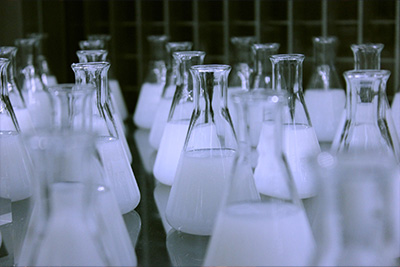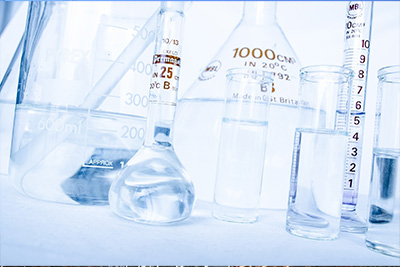-
![Enhancing PVC Tran···]() 2024-11-21 Enhancing PVC Transparency and Gloss···
2024-11-21 Enhancing PVC Transparency and Gloss···This study explores the use of methyltin mercaptides to improve the transparency and gloss of polyvinyl chloride (PVC) products. By incorporating these additives into PVC formulations, significant enhancements in optical properties are achieved. The research details specific formulation strategies that optimize the balance between clarity, gloss, and other performance attributes, leading to the development of high-quality PVC materials suitable for various applications.
read more > -
![Life Cycle Analysi···]() 2024-11-21 Life Cycle Analysis of Methyltin Mer···
2024-11-21 Life Cycle Analysis of Methyltin Mer···This study conducts a Life Cycle Analysis (LCA) on methyltin mercaptide-stabilized Polyvinyl Chloride (PVC) products, examining both environmental and economic impacts throughout the product's lifecycle. The analysis evaluates raw material extraction, production processes, usage phases, and end-of-life disposal or recycling. Findings indicate that while methyltin mercaptides offer superior stabilization efficacy, reducing material waste, their production involves higher energy consumption and chemical emissions. Economically, although initial costs may be higher, long-term benefits include extended product lifespan and reduced maintenance costs. The research underscores the need for balanced approaches that consider both ecological footprints and economic viability in sustainable PVC product development.
read more > -
![Methyltin Mercapti···]() 2024-11-21 Methyltin Mercaptide as a Heat Stabi···
2024-11-21 Methyltin Mercaptide as a Heat Stabi···Methyltin mercaptide is utilized as a heat stabilizer in polyvinyl chloride (PVC) products intended for food contact. This article explores the regulatory considerations and testing requirements associated with its use. Key concerns include ensuring compliance with safety standards set by regulatory bodies such as the FDA, to guarantee that methyltin mercaptide does not migrate into food and pose health risks. The testing process involves rigorous analysis to confirm the stability and safety of PVC materials containing this additive, emphasizing the importance of stringent quality control measures throughout production.
read more > -
![The Impact of Proc···]() 2024-11-20 The Impact of Processing Temperature···
2024-11-20 The Impact of Processing Temperature···The article examines how fluctuations in processing temperature affect the efficiency of methyltin mercaptide as a stabilizer in polyvinyl chloride (PVC). It highlights that temperature variations can significantly impact the thermal stability and overall performance of PVC materials. The study reveals that optimal processing temperatures are crucial for maintaining the effectiveness of methyltin mercaptide, thereby ensuring the longevity and quality of PVC products.
read more > -
![Reducing Methyltin···]() 2024-11-20 Reducing Methyltin Mercaptide Conten···
2024-11-20 Reducing Methyltin Mercaptide Conten···This study explores methods to decrease the methyltin mercaptide content in polyvinyl chloride (PVC) formulations while maintaining thermal stability. Traditional formulations often require high levels of methyltin mercaptides for effective heat stabilization, but these can have environmental concerns. The research investigates alternative stabilizers and formulation techniques that reduce the need for methyltin mercaptides, ensuring that the thermal stability of the PVC remains unchanged. The findings provide a pathway for more environmentally friendly PVC formulations without sacrificing performance.
read more > -
![The Use of Methylt···]() 2024-11-20 The Use of Methyltin Mercaptide in M···
2024-11-20 The Use of Methyltin Mercaptide in M···The article discusses the application of methyltin mercaptide as a stabilizer in medical-grade polyvinyl chloride (PVC). It highlights how this compound ensures the safety and stability of PVC materials used in sensitive medical applications. The use of methyltin mercaptide enhances the performance of PVC by preventing degradation during processing and use, thereby maintaining its properties crucial for medical devices. This stabilizing effect is vital to meet stringent regulatory standards, ensuring biocompatibility and reliability in applications such as blood bags and tubing.
read more > -
![Methyltin Mercapti···]() 2024-11-20 Methyltin Mercaptides Role in Enhanc···
2024-11-20 Methyltin Mercaptides Role in Enhanc···Methyltin mercaptides play a crucial role in enhancing the ultraviolet (UV) resistance of polyvinyl chloride (PVC) compounds. These additives effectively absorb and dissipate UV radiation, preventing degradation and maintaining the physical properties of PVC materials. By incorporating methyltin mercaptides, the service life and durability of PVC products exposed to sunlight are significantly improved, making them more suitable for long-term outdoor applications. This study highlights the importance of these organotin compounds in formulating UV-resistant PVC formulations.
read more > -
![Evaluating Methylt···]() 2024-11-20 Evaluating Methyltin Mercaptides Eff···
2024-11-20 Evaluating Methyltin Mercaptides Eff···The study investigates the efficacy of methyltin mercaptides as non-phthalate plasticizers in PVC formulations. Results indicate that these tin compounds significantly enhance the flexibility and processability of PVC, while maintaining mechanical properties. Compared to traditional phthalate plasticizers, methyltin mercaptides demonstrate comparable performance with added benefits of reduced toxicity and environmental impact. The research underscores the potential of methyltin mercaptides as viable alternatives in PVC applications, offering a safer and more sustainable option for plasticization.
read more > -
![Using Methyltin Me···]() 2024-11-20 Using Methyltin Mercaptide for Optim···
2024-11-20 Using Methyltin Mercaptide for Optim···The use of methyltin mercaptide as an additive in PVC roofing membranes has been explored to enhance their longevity and performance. This study investigates how the incorporation of methyltin mercaptide improves the thermal stability, weatherability, and overall durability of the membranes. The results indicate that membranes treated with methyltin mercaptide exhibit superior resistance to degradation under UV exposure and thermal stress compared to untreated counterparts. These findings suggest that the addition of methyltin mercaptide can significantly extend the service life and maintain the integrity of PVC roofing membranes, making them more reliable and cost-effective over time.
read more >








